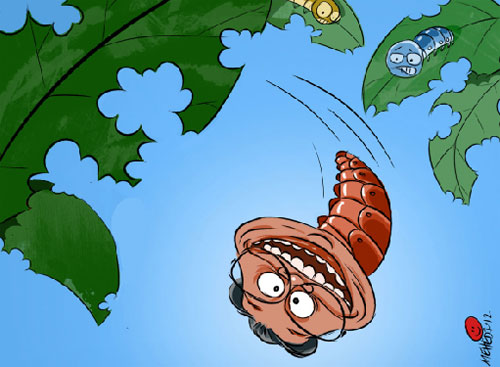
He did resign in the end. And the resignation was accepted. Minutes before the announcement, it was still being debated on the talk shows. Would this be another hoax? Would she accept the resignation? Had we finally gotten rid of him? Regardless, it was too little, too late.
Corruption is of course a problem. It is a problem with the current government. It has been a problem with previous governments and it continues to be a problem within the World Bank. That there are vested interests in why and how money gets disbursed is also a reality. So the idea of the World Bank calling this particular kettle black is ironic. The cancellation by the World Bank loan of 1.2 billion dollars for building a bridge across the Padma river was unfortunate, as the penalty for the suspected corruption was being paid neither by the officials in question, nor the government in power, but by the general public of Bangladesh.
However, the issue of possible corruption cannot be brushed aside. The suggestion by the Bank that the officials presumed to be involved, be removed to allow a credible investigation is a reasonable one, and a course the government should have taken regardless of whether the Bank had asked for it or not. The Bank has pointed out potential irregularities, and a government that came into power with a pre-election promise that it would root out corruption should at the least have demonstrated that it took the allegations seriously. The cancellation of the loan by the Bank, followed by back pedaling by the Asian Development Bank (ADB) and the Japan International Cooperation Agency (JICA), casts serious doubts on the government?s ability to complete the project, yet another pre-election pledge. And if doing it on our own was a better plan anyway, why did we go down this road in the first place?
Pre-election pledges however, have never been paid more than lip service. The bribery scandal against the railway minister was investigated internally by the ministry itself. Unsuprisingly, the minister was acquitted of all wrong-doing. Mysteriously dropping the name of the main accused (brother of a minister) in the murder case of the Narsingdi ex-mayor has not exactly boosted public confidence. Dropping all charges against party members, but actively pursuing cases against opposition members, has further undermined the credibility of the government. So this blatant attempt to protect the minister and his accomplices, while not a surprise, did cast huge doubts on the minister?s innocence. Suspicious behavior breeds suspicion.
The government had taken a different tack. Its sudden defiance against imperial powers rang hollow considering the complete acquiescence in all previous transactions. It was a new song, sung out of tune. The public demand for transparency was a valid one, regardless of the outcome of this particular case. The government?s attempts at diversion, by claiming that the entire nation had been belittled, was one it itself could have addressed, by making its correspondence public. Though accountability has never been its strength, this at least would have ensured that the public be spared this smearing.
As expected, the new World Bank president did not retract the previous president?s decision. After all, no new evidence had been presented to suggest a revaluation of the case.
The government?s high and mighty position about a person being innocent until proven guilty was a bit thick, considering the numerous extra judicial killings that have taken place. A government that repeatedly murders its people without allowing for the due process of law, can hardly claim foul when it is penalised for accusations of conspiracy to corruption. Sadly, it is the people of Bangladesh who have paid the ultimate penalty through ?crossfire? killings. It is again the same people who will pay the price for the alleged corruption of its law-makers.
The open letter by the minister to his ?dear citizens? emphatically asserted that he had been an upright citizen all his life, and that there was not a blemish on his distinguished career. That he had resigned in the past, while state minister, for having used the wrong passport, that there had been public outrage at his negligence of road maintenance, allegedly as a result of corruption, and that his fellow ministers had in the past, repeatedly called for his removal, was something he forgot to mention.
There is however a potentially bigger story here. One that the opposition has alluded to. The minister Syed Abul Hossain, was not considered to be such a big player in the political arena. Why take on such flak to protect a minor player? Unless.
It is this latter story, initially whispered, but now on everyone?s lips, that the prime minister will need to deal with. When one tries so hard to bury a story, there is always the doubt that the story is big. The Padma bridge we might still get. The prime minister?s credibility gap will be a bigger bridge to cross.
Skip to content
Musings by Shahidul Alam

One thought on “Padma. A bridge too far.”